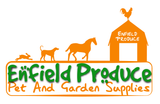Compost Worms For Worm Farm Kits and other uses.
Compost Worms eat our food waste – 1000 worms in a worm farm will eat around 125 grams of food waste per day producing valuable liquid, castings and baby worms for your garden. Over time the population will increase and depending on the size of your worm farm eat more and produce more. Typical domestic worm farms like the Worm Cafe are capable of producing around 2 litres of (10:1 diluted) liquid per week, 30-40kgs of castings per year and thousands of baby worms. Great care is taken to pack our worms in damp coconut fibre in polycarbonate woven bags for good airflow within a waxed box for safe delivery.
DISCLAIMER: There are no refunds for worms that die in transit. While it's rare that this happens, the likelihood does increase during hot summer periods (Dec to Feb). Outside these months the risk becomes very low to almost non-existent. Please consider selecting the quickest freight option like Sydney Direct or Aus Post Express during hot summer periods. Since COVID Aus Post Express has been much less reliable so you may want to consider Toll Ipec instead. Toll Ipec may be a better option for interstate but please check transit times first and only select if it's 1 or 2 days to your area at the most. The lead-up to Christmas and other holidays are especially high risk and can lead to delays and it's best not to order leading up to such holidays.
We do not guarantee how many worms are in each container. We have no way of counting them and simply sell them as we receive them from the supplier. Listed amounts are just rough estimates and NOT guaranteed.
About Compost Worms:
Compost worms are tireless in converting organic (food and garden) waste into worm castings (manure) which is a complete organic fertiliser for plants. Charles Darwin first demonstrated how worm castings rejuvenate and enrich the soil. His experiment with potatoes showed their roots growing directly towards the castings, searching for their fine balance of nutrients. There are three main species of compost worms also known as earthworms – Reds (eg, lumbricusrubellus) and the striped Tigers (eg, eiseniafoetida) are European imports now common in Australia, but there are over 300 native varieties including Blues (eg, Octolasion cyaneum).
The average length of composting worms is from 50 – 150mm. Worm farming at home, work, school and in the community will help reduce pollution through landfilling. Around 5% of global greenhouse gases are caused by organics in landfills; worm farming and composting can stop this pollution and return the benefits to the soil.
Worms in worm farms like to eat most fruit and vegetable scraps but need them cut into small pieces, as they eat by sucking. Acidic foods like citrus, onion and dairy should only be used sparingly with lime or dolomite added to balance the pH. Worm farms generally produce - liquid, castings and baby worms all of which make healthy additions to your garden. Compost worms can also be used as food for other animals like birds and fish, including use as bait.
During autumn and spring and given optimum conditions, compost worms breed rapidly and may lay a capsule (cocoon) weekly. Each capsule contains between 2 and 20 baby worms which hatch in under three weeks and reach maturity in three months.
Worms are hermaphrodites (both male and female); they mate and each worm becomes pregnant at the saddle (clitellum – the lighter coloured section around 20mm below the head). To breed successfully your worm farm should be kept damp, cool, quiet and dark.
Frequently Asked Questions:
Q. How many compost worms should I buy for a new worm farm kit?
A. The manufacturer of the worms farms recommends starting a new worm farm with at least 1000 compost worms or more ideally. However, the worms will multiply and increase in number naturally over time. We would suggest that if you have a lot of scraps to break down from the very beginning its best to get 1000 to 2000 compost worms but if you don't have much or are willing to wait for a few months to build the worm population then you could get the 500 worm pack instead.
Q. What type or variety of compost worms do you sell?
A. Generally, they are Reds and Red Tigers. They are a mixture of compost worms but mainly they are of those 2 species.
Q. I have recently bought a worm farm and have discovered that red wrigglers or tiger worms are best used rather than my usual compost worms. Is this true? And do you have these worms available?
A. We got this reply from our supplier: "The worms we most usually sell are the red wrigglers, red tigers or red worms as they are commonly known - species eisenis. These are generally the best to use in worm farms as they normally live in the topsoil. As to another species that is referred to - well it depends on which species the customer is talking about. The only species of native worms that normally live in topsoil are Spenceralia aka Aussie Blues or Indian Blues also known as Excavatus. They tend to be outcompeted by the reds but can cohabit with them. So it all depends on what they are referring to"
Q. Have these compost worms been exposed to any sort of fertilizer or pesticides?
A. After asking the manufacturer I got the following answer.


